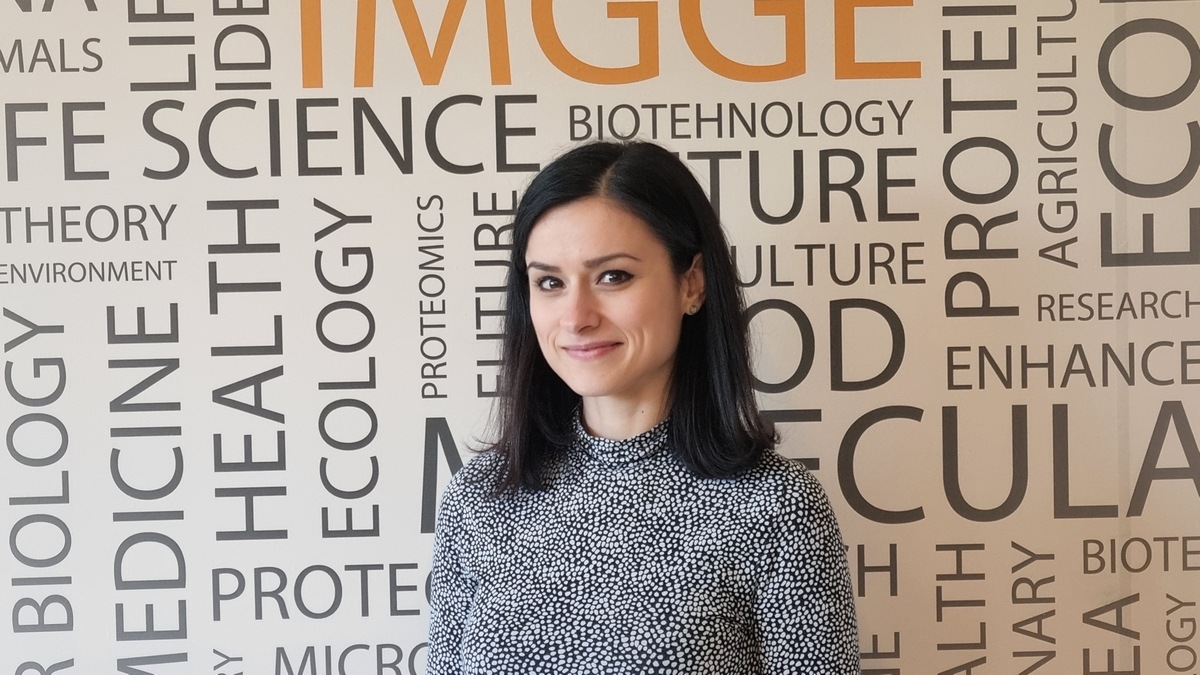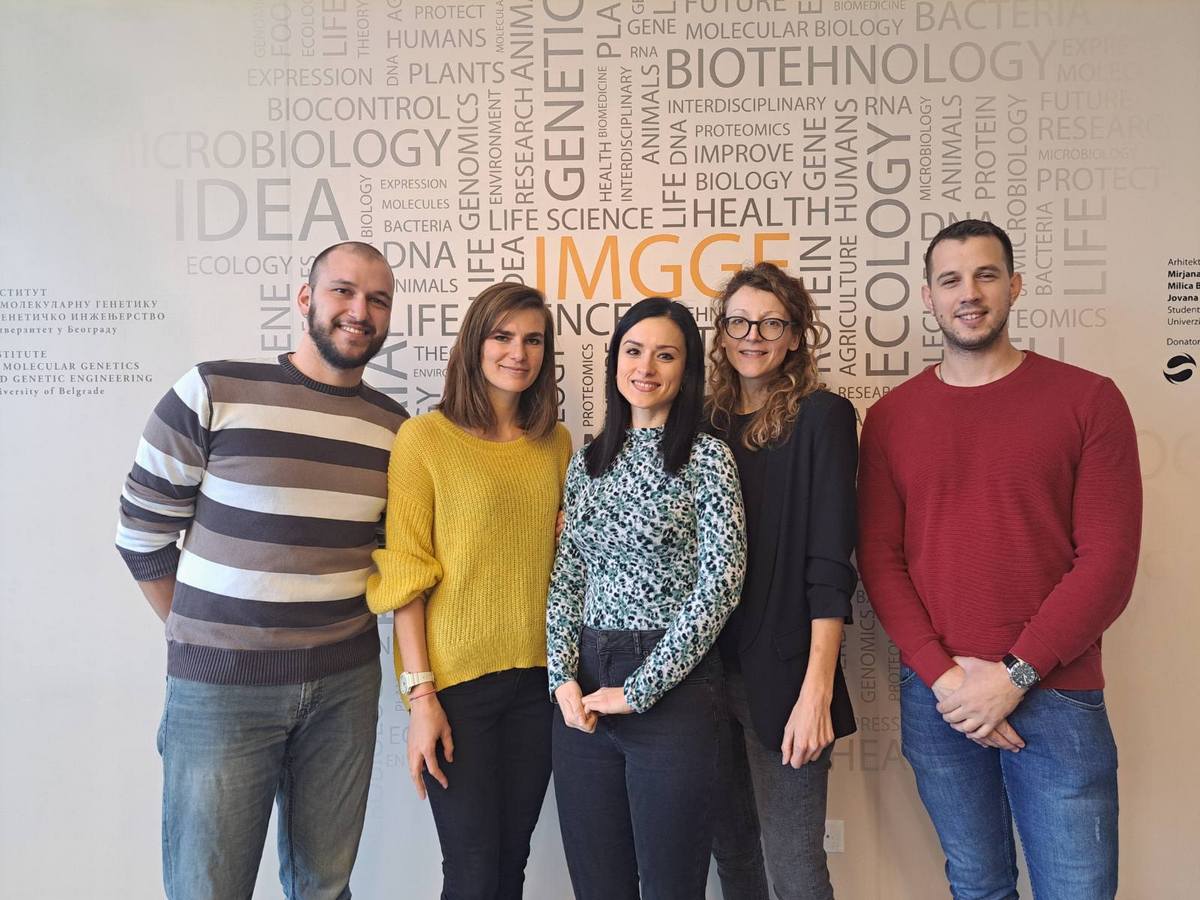Assessment of seasonal airborne resistome dynamics in response to air pollution exposure in the Belgrade metropolitan area
Article Author and Principal Investigator of the Project:
Dr. Katarina Novović
Senior Research Associate, Institute of Molecular Genetics and Genetic Engineering, University of Belgrade
Antimicrobial resistance and air pollution have been identified as one of the most serious threats to human health worldwide. The excessive and inappropriate use of antimicrobials in the treatment of humans and animals, as well as in agriculture, has led to the emergence and rapid spread of pathogens resistant to almost all clinically relevant antibiotics. Antibiotic resistance was estimated to be the direct cause of 1.27 million deaths worldwide in 2019, while it was associated with almost 5 million deaths. If a quick and effective solution to this problem is not found, it could be the cause of up to 10 million deaths annually by 2050.

Furthermore, the World Health Organization estimated that air pollution led to approximately 4.2 million premature deaths in 2019 globally. The main reason for this is considered to be overexposure to PM2.5 particles, which can penetrate the lungs and bloodstream, causing respiratory, cardiovascular, and malignant diseases. In 2021, it was estimated that as much as 97% of the urban population was exposed to concentrations of PM2.5 particles above than recommended making the situation extremely worrying. The countries of Eastern and South-Eastern Europe are particularly affected by increased PM2.5 concentrations and a higher number of deaths caused by air pollution. The main reason for more pronounced air pollution in these countries is the use of low-quality solid fuels and ovens in households during the heating season when the highest levels of air pollution was observed.
To prevent increasing resistance to antimicrobial Drugs, the European Commission highlighted the importance of the link between humans, animals, and the environment in the transmission of this significant health problem. In this context, the data collection and monitoring of antimicrobial resistance in the environment is of great importance for the overall picture of resistant pathogens transmission. Although the presence and diversity of antibiotic resistance in water and soil have been extensively studied in recent years, studies addressing the monitoring of this problem, and the link between air pollution and antibiotic resistance are much rarer. Nevertheless, these studies are of extraordinary importance, as airspace enables the transmission of antibiotic resistance over long distances through bioaerosols and long persistence in the atmosphere. In addition, airborne microorganisms are a component of PM2.5 particles, a proxy indicator of air pollution, which, as already mentioned, can easily enter the lungs and bloodstream of humans.
Since antimicrobial resistance and air pollution pose serious threat to humans, understanding their interconnection could lead to the development of better guidelines to limit the spread of antimicrobial resistance and air pollution simultaneously. limited data suggest that air pollution does indeed influence the dissemination of antibiotic resistance in the atmosphere. The limitation of these data mainly to China shows that there is a need to obtain evidence from a broader global area, especially from regions exposed to high and continuous pollution. Considering that Serbia is a country struggling with the excessive antibiotic use and misuse, a high percentage of multiDr.ug-resistant bacterial isolates, and poor air quality, the Serbian capital Belgrade is considered an interesting research model for the effects of air pollution on the abundance and spread of antimicrobial resistance in the air.
The overall objective of our research is to determine the effect of air pollution on the abundance and diversity of pathogens (bacteria and fungi), genes that provide resistance to antibiotics, biocides and metals, as well as on elements that ensure rapid and easy spread of antimicrobial resistance in the air collected at nine locations in Belgrade metropolitan area during four seasons. A broader insight into the impact of air pollution on antibiotic resistance in the air was provided by the selection of nine locations according to the degree of air pollution and urban development, as well as by the application of state-of-the-art air sample analyses.
The comprehensive approach of the AirPollRes project will provide the first evidence of the interrelationship of antibiotic resistance and air pollution in Belgrade, which is significantly exposed to these public health threats. Therefore, the project’s goal is to highlight the far more pronounced complexity of these two health problems, raise individual awareness and potentially contribute to solving this problem on a micro level. Furthermore, by addressing the public through various media channels, we want to reach out to the government and private companies to implement additional and more effective action plans and channel funds into innovations that will affect the reduction of air pollution and limit the release of antibiotic-resistant pathogens into the environment from sources such as livestock farms, wastewater treatment plants, landfills and hospitals. Also, it is necessary to solve the problem of antimicrobial Dr.ugs that are released into the environment from various sources (medicine production, health facilities, agricultural and livestock production, human and animal excreta), because even a minimal selective concentration of antimicrobial compounds contributes to the development of antibiotic resistance in the environment. In addition to the above, healthcare workers will be advised to limit the consumption of antimicrobial agents to cases where the situation requires it and to pay more attention to the choice of antibiotics they use in therapy. Additionally, the impact that could be achieved by this project indirectly includes an economic aspect, as it is estimated that the annual shortfall in global gross domestic product due to antibiotic resistance could reach 3.4 billion dollars per year.
Through the aforementioned impact on society, industry, the environment, healthcare and the economy, this project will contribute to the long-term improvement of human and animal health, enabling a longer and better quality of life. Although the whole society is considered as the final beneficiary, vulnerable groups such as children, the elderly, low-income citizens with limited access to healthcare and workers in wastewater treatment plants and farms may benefit more from this project.
As AirPollRes is a pioneering project in this field, the expected short-term impact is to introduce routine monitoring of airborne pathogenic microorganisms and antibiotic resistance at least initially in highly urbanized locations. The example of the COVID-19 pandemic shows how the initial neglect of the environmental dimension can have consequences for global health. Therefore, there is an urgent need for modern society to take effective initiatives to prevent and combat serious health threats, such as antibiotic resistance and air pollution, taking into account all their dimensions.
Program:
Program for Excellent Projects of Young Researchers and Young Scientists in the Early Career Phase – PROMIS 2023
Science and Research Organizations:
Institute of Molecular Genetics and Genetic Engineering, University of Belgrade
Project Budget:
EUR 144,753
Project Team Members:
- Dr. Danka Matijašević, Research Associate, Institute of Molecular Genetics and Genetic Engineering
- Dr. Milka Malešević, Research Associate, Institute of Molecular Genetics and Genetic Engineering
- Lazar Gardijan, Research Associate, Institute of Molecular Genetics and Genetic Engineering
- Stefan Stanovčić, Research Associate, Institute of Molecular Genetics and Genetic Engineering
